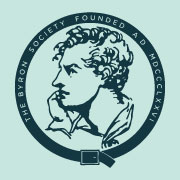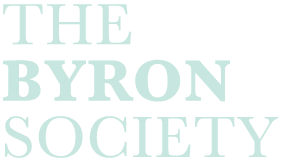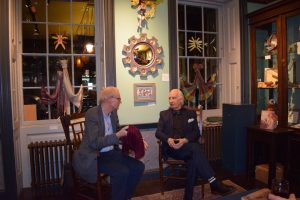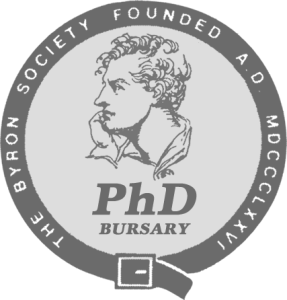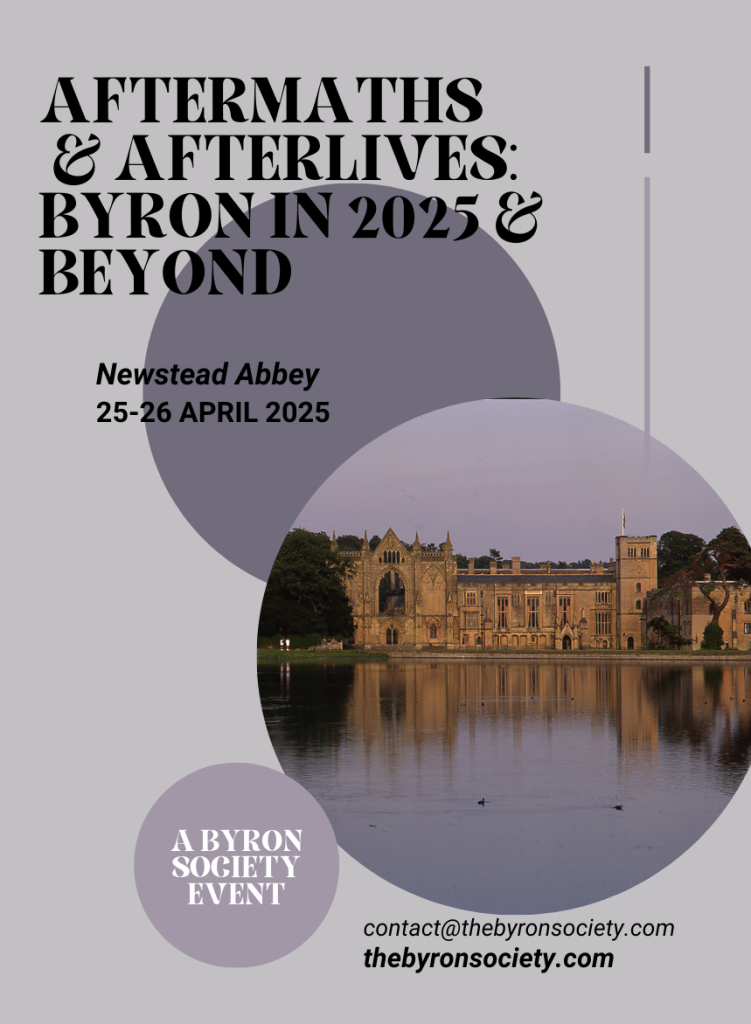By Marc Gotthardt
28 January 2023
Bernard Beatty is proof that one can read Byron for six decades without once being bored, as he says. For someone who has barely started on his lifelong journey with Byron, it is a special pleasure to hold the outcome of a lifetime of close and careful attention, Bernard’s new book Reading Byron, in my hands. Reading Byron had been highly anticipated not just because Bernard is such a richly decorated Byronist, but also because he has cultivated an appreciation for Byron as a deeply serious thinker as well as a poet speaking with a unique voice. Even today, neither of these can be taken for granted. Though Byron did not subscribe to any articular philosophical position, he harboured a sustained interest in profound metaphysical questions, an aspect that Reading Byron foregrounds against Byron’s (equally important) jovially playful and skeptical side, which we tend to find privileged today. And reading, for Bernard, is also always a species of listening, an attunement to the ways in which Byron speaks to us today. Above all, the book’s message is that Byron is—still—worth opening our eyes and ears to.
Robin, Lord Byron (left) in conversation with Bernard Beatty at the Art Workers Guild
Virginia Woolf supposed Don Juan to have been ‘the most readable poem of its length ever written’; while this is owing in part to the malleable nature of this particular verse, as she observes, Byron’s general readability is further indebted to him speaking a language intimately familiar to many of us. Talking to Gavin Hopps, Bernard stresses that Byron is ‘immersed’ in a ‘conversational idiom’ (p. 224). It is only fitting, then, that the book preview in November (prior to its official launch by Liverpool University Press in January) marked an evening of both reading and conversation.
The event, hosted by the Byron Society at the Art Workers’ Guild in Bloomsbury, London, nicely bookended a year of talks on Byron and adjacent figures. For this special occasion, Robin, Lord Byron (President of the Byron Society), sat down with Bernard to discuss the genesis of the book, its aims, and how each age develops its own reading of Byron’s poetry. Alongside important influences he cites, like G. Wilson Knight or Jerome McGann, Bernard has left a mark on the way we read Byron today in numerous books and articles. It was David Woodhouse, the editor of Reading Byron, who, during a long layover at Kyiv airport, suggested that Bernard ought to collect some of these articles in a book. Out of this conversation there evolved a more focussed project, one that seeks to synthesise Byron’s poetry, life, and politics by giving primacy to reading him as a poet, above all (whereas some existing biographies take on the life almost independently of the poetry). This is because Byron’s poetry is more than the marker of a particular stage in his personal development; it is written from experience but, most importantly, it opens up a space of experience for the reader, ‘Till, growing with its growth, we thus dilate / Our spirits to the size of that they contemplate’ (Childe Harold IV, 158). Byron enlarges our experience. He gives us what was once commonly understood to be the purpose of poetry, especially long poetry, says Bernard: an aesthetic and cultural form that seeks not just to represent the world in detail but simultaneously show which of our concerns that world impinges on.
A poem such as Don Juan showcases the myriad forms of human experience in its wide-ranging survey of ‘life itself’, but a lot of the aforementioned impingements lead us into more difficult terrain. Byron at his most Byronic is dark and mysterious, a side which was familiar to the Victorians but has been side-lined since, the book argues. To give a flavour of this side of Byron, and indeed, to highlight the books main concern—that Byron ought to be read—the conversation was followed by a rendition of his poetry. Bernard and Christine Kenyon-Jones (King’s College London) lent their voices to different moods and characters across Byron’s oeuvre. There are hues to Byron’s darkness, and the pieces and excerpts ranged across a Byronic insistence on the primacy of the will to the trepidations of unrequited passion; all spoke, however, to a common experience, an experience accessible to everyone but most dramatically manifest in those Byronic heroes who find themselves most trapped in the vice between intensely feeling their own situation and experience, and yet not quite knowing its full scope. In reading Byron, and indeed in Reading Byron, we find the human heart ‘unmasked’, both ‘half-aware and wholly aware’ (p. 54).
The commonality of experience which Bernard highlighted found ample resonance with the audience, to whom the floor was subsequently opened for questions. The resulting ‘conference’, as Kenneth Robbie (Chairman of the Byron Society) quoted Bacon, underlined the book’s main point, namely the fact that Byron’s poetry continues to inspire thoughtful dialogue. There is something reassuring in the publication of a book like Reading Byron, in that the questions raised in its pages and in the responses show very clearly that the conversation about, and with, Byron is ongoing.
All of the videos, alongside more information about the book and its author, are available on a dedicated website, https://www.readingbyronbernardbeatty.com/. The book can be found on the pages of Liverpool University Press and in bookstores.
